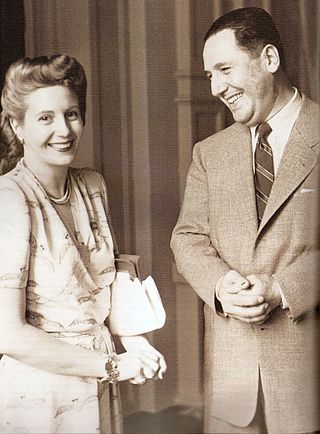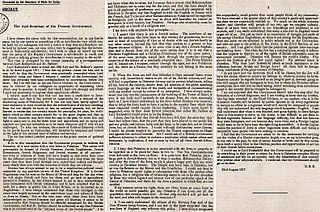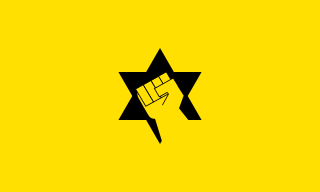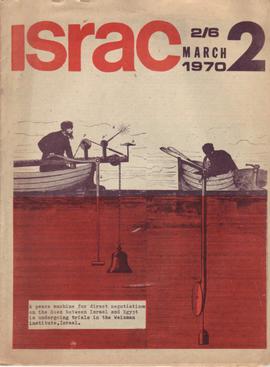Related Research Articles

Judaism is an Abrahamic, monotheistic, and ethnic religion. It comprises the collective spiritual, cultural, and legal traditions of the Jewish people, having originated as an organized religion in the Middle East during the Bronze Age. Contemporary Judaism evolved from Yahwism, the cultic religious movement of ancient Israel and Judah, around the 6th/5th century BCE, and is thus considered to be one of the oldest monotheistic religions.

The Jewish Defense League (JDL) is a far-right religious and political organization in the United States and Canada. Its stated goal is to "protect Jews from antisemitism by whatever means necessary"; it has been classified as "right-wing terrorist group" by the Federal Bureau of Investigation (FBI) since 2001, and is also designated as hate group by the Southern Poverty Law Center. According to the FBI, the JDL has been involved in plotting and executing acts of terrorism within the United States. Most terrorist watch groups classify the group as inactive as of 2015.

Meir David HaKohen Kahane was an American-born Israeli ordained Orthodox rabbi, writer, and ultra-nationalist politician who served one term in Israel's Knesset before being convicted of acts of terrorism. He founded the Israeli political party Kach. A cofounder of the Jewish Defense League (JDL), he espoused strong views against antisemitism.

Zionism is a nationalist movement that emerged in Europe in the 19th century to enable the establishment of a homeland for the Jewish people in Palestine, a region roughly corresponding to the Land of Israel in Jewish tradition. Following the establishment of the modern State of Israel, Zionism became an ideology that supports the development and protection of the State of Israel as a Jewish state.

Peronism, also known as justicialism, is a labour and left-leaning Argentine political movement based on the ideas and legacy of Argentine ruler Juan Perón (1895–1974). It has been an influential movement in 20th- and 21st-century Argentine politics. Since 1946, Peronists have won 10 out of the 14 presidential elections in which they have been allowed to run.
Identity politics is politics based on a particular identity, such as race, nationality, religion, gender, sexual orientation, social background, caste, and social class. The term could also encompass other social phenomena which are not commonly understood as exemplifying identity politics, such as governmental migration policy that regulates mobility based on identities, or far-right nationalist agendas of exclusion of national or ethnic others. For this reason, Kurzwelly, Pérez and Spiegel, who discuss several possible definitions of the term, argue that it is an analytically imprecise concept.
Soviet anti-Zionism is an anti-Zionist and pro-Arab doctrine promulgated in the Soviet Union during the Cold War. While the Soviet Union initially pursued a pro-Zionist policy after World War II due to its perception that the Jewish state would be socialist and pro-Soviet, its outlook on the Arab–Israeli conflict changed as Israel began to develop a close relationship with the United States and aligned itself with the Western Bloc. Anti-Israel Soviet propaganda intensified after Israel's sweeping victory in the 1967 Arab–Israeli War, and it was officially sponsored by the agitation and propaganda media of the Communist Party of the Soviet Union as well as by the KGB. Among other charges, it alleged that Zionism was a form of racism. The Soviets framed their anti-Zionist propaganda in the guise of a study of modern Zionism, dubbed Zionology. The Soviet anti-Israel policy included the regulated denial of permission for Jews in the Soviet Union to emigrate, primarily to Israel, but also to any other country.
Jewish extremist terrorism is terrorism, including religious terrorism, committed by extremists within Judaism.
The League of Revolutionary Struggle (Marxist–Leninist) was a Marxist–Leninist[1] movement in the United States formed in 1978 by merging communist organizations. It was dissolved by the organization's leadership in 1990.

Jewish secularism refers to secularism in a Jewish context, denoting the definition of Jewish identity with little or no attention given to its religious aspects. The concept of Jewish secularism first arose in the late 19th century, with its influence peaking during the interwar period.
The John Brown Anti-Klan Committee (JBAKC) was an anti-racist organization based in the United States. The group protested against the Ku Klux Klan (KKK) and other white supremacist organizations and published anti-racist literature. Members of the JBAKC were involved in a string of bombings of military, government, and corporate targets in the 1980s. The JBAKC viewed themselves as anti-imperialists and considered African Americans, Native Americans, Puerto Ricans, and Mexicans to be oppressed colonial peoples.
James Petras is a retired Bartle Professor (Emeritus) of Sociology at Binghamton University in Binghamton, New York and adjunct professor at Saint Mary's University, Halifax, Nova Scotia, Canada who has published on political issues with particular focus on Latin America and the Middle East, imperialism, globalization, and leftist social movements.

Anti-Zionism is opposition to Zionism. Although anti-Zionism is a heterogeneous phenomenon, all its proponents agree that the creation of the modern State of Israel, and the movement to create a sovereign Jewish state in the region of Palestine—a region partly coinciding with the biblical Land of Israel—was flawed or unjust in some way.

The common definition of Zionism was principally the endorsement of the Jewish people to return to their homeland, secondarily the claim that due to a lack of self-determination, this territory must be re-established as a Jewish state. Zionism was produced by various philosophers representing different approaches concerning the objective and path that Zionism should follow.
Judaism's doctrines and texts have sometimes been associated with violence or anti-violence. Laws requiring the eradication of evil, sometimes using violent means, exist in the Jewish tradition. However, Judaism also contains peaceful texts and doctrines. There is often a juxtaposition of Judaic law and theology to violence and nonviolence by groups and individuals. Attitudes and laws towards both peace and violence exist within the Jewish tradition. Throughout history, Judaism's religious texts or precepts have been used to promote as well as oppose violence.

Lehava is a far-right and Jewish supremacist organization based in Israel that strictly opposes Jewish assimilation, objecting to most personal relationships between Jews and non-Jews. It is opposed to the Christian presence in Israel. It has an anti-miscegenation focus, denouncing marriages between Jews and non-Jews forbidden by Orthodox Jewish law. The group has over 10,000 members.

Kach was a radical Orthodox Jewish, religious Zionist political party in Israel, existing from 1971 to 1994. Founded by Rabbi Meir Kahane in 1971, based on his Jewish-Orthodox-nationalist ideology, the party earned a single seat in the Knesset in the 1984 election, after several electoral failures. However, it was barred from participating in the next election in 1988 under the revised Knesset Elections Law banning parties that incited racism. After Kahane's assassination in 1990, the party split, with Kahane Chai breaking away from the main Kach faction.

The Jewish left consists of Jews who identify with, or support, left-wing or left-liberal causes, consciously as Jews, either as individuals or through organizations. There is no one organization or movement which constitutes the Jewish left, however. Jews have been major forces in the history of the labor movement, the settlement house movement, the women's rights movement, anti-racist and anti-colonialist work, and anti-fascist and anti-capitalist organizations of many forms in Europe, the United States, Australia, Algeria, Iraq, Ethiopia, South Africa, and modern-day Israel. Jews have a history of involvement in anarchism, socialism, Marxism, and Western liberalism. Although the expression "on the left" covers a range of politics, many well-known figures "on the left" have been of Jews who were born into Jewish families and have various degrees of connection to Jewish communities, Jewish culture, Jewish tradition, or the Jewish religion in its many variants.

Matzpen is the name of a revolutionary socialist and anti-Zionist organisation, founded in Israel in 1962 which was active until the 1980s. Its official name was the Socialist Organisation in Israel, but it became better known as Matzpen after its monthly publication.
References
- ↑ "The Chutzpah Collective: Introduction" (PDF). Marxists.org . Retrieved April 11, 2023.
- 1 2 3 "Maralee Gordon". Jewish Women's Archive . Retrieved April 11, 2023.
- ↑ Kranson, Rachel (2017). Ambivalent Embrace: Jewish Upward Mobility in Postwar America. Chapel Hill, North Carolina: The University of North Carolina Press. p. 161. ISBN 9781469635446.
- ↑ "Chutzpah - Living Judaism". The Wisconsin Jewish Chronicle. The Wisconsin Jewish Journal. August 23, 1979. p. 15. Retrieved April 11, 2023.
- ↑ "Speakers - Jewish Feminisms". University of Michigan . Retrieved April 11, 2023.